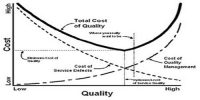Routine functions of financial managers
Financial management refers to the efficient and effective management of money in such a manner to accomplish the objectives of the organization. It includes how to raise the capital and how to allocate capital. These are mainly day-to-day functions of a financial manager. Routine functions are subdivided into the following category:
(a) Financial Planning – Planning is deciding future course of actions. Financial Planning is deciding financial actions and activities that are to be followed in the future course of business. Every day every moment all the activities of an organization are connected with finance. The long term planning of an organization has interconnected links with every other planning of the business. Future investments are usually backed by different financing alternative.
(b) Identification of Sources – A financial manager must have to decide the sources from where the organization will be financed. The followings can be the Options according to the organizational activities. There are short-term, mid-term and long-term source of fund. They are available from Banks, Financial Institutions, Specialized Financial & Investment Companies, Insurance Companies, Bonds, Shares and Personal Sources. Financial Manager has to identify the cost-effective and most desirable source for its financing.
(c) Raising of Funds – After identification and all other planning, financial manager has to decide from where he will raise the funds. The financial manager should take the decision according to the financial needs and demands of the organization. At the time of raising funds he must be aware of the interest rate of the fund. The raising of fund involves very complex procedure. The financial manager should be conscious enough to handle those procedures and requirements.
(d) Investment of Fund – The financial managers need to make decisions for the short-term investment of the fund. For the proper utilization of the idle funds, time to time a firm goes for the short-term investment. At the time of short-term investment a financial manager must ensure liquidity of the fund and earnings from the investment. As financial managers take decision about the investment the responsibility of protecting invested fund goes in their shoulder. By analyzing the risk of different investment managers have to find the last risk sources to ensure the projection of fund. Financial managers also have to find out the highest profitable investment at a low risk.
(e) Distribution of Profit – Financial managers are also responsible in making decision for yearly profit payments. The financial manager make proposals for the profit payment and after passing the proposal from the AGM the financial department goes lot the distribution of the yearly profit; mainly there are three options for the distribution of the profit. Company may provide 0% profit or 100% retention or party payment and retention.
(f) Fore Casting of Cash Flow – A financial manager knows cash is the lifeblood of an organization. They also know profit of the balance sheet doesn’t mean the better position of the company unless the finance department got the cash in hand. So, a financial manager needs to analyze and forecast the cash flow of a business. By forecasting he can identify the future cash requirements and cash availability in different point in time. If there is any shortage or surplus of fund the financial manager can take appropriate decision.
(g) Coordination & Control – The financial manager must interact with other personnel to ensure that the firm is operated as efficiently as possible. AU business decisions have financial implications, and all managers – financial and otherwise – need o take this into account.
(h) Dealing with the Financial Markets – The financial manager must deal with the money and capital markets. Each firm affects and is affected by the general financial markets where funds are raised, where the funds securities waded, and where investors either make or lose money.
(i) Risk Management – All business faces risks. Many of the risks can be reduced by purchasing insurance or by hedging in the derivatives markets. The financial manager is responsible for the firm’s overall risk management program, including identifying the risks that should be managed and then managing them in the most efficient manner.
















